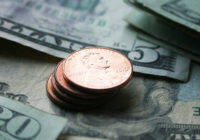Having done the accounting on the wealth of the 12 richest Americans, MarketWatch’s editor, Shawn Langlois, points to what he sees as “a disturbing milestone.” Led by Bill Gates, Elon Musk and Jeff Bezos, the economic and political clout of what Chuck Collins of the Institute for Policy Studies calls the “Oligarchic Dozen” amounts to a total of over $1 trillion. Even more surprising, this has occurred during or more likely thanks to the COVID-19 pandemic.
In case anyone was wondering about the destination of those multiple trillions earmarked by the US Congress in March to respond to the devastating pandemic, Langlois crunches the numbers. “Since the pandemic first blew up in the U.S. back in March, the ‘Oligarchic Dozen’ has enjoyed a 40% surge in its combined wealth — or an increase of $283 billion,” he writes.
Rafael Nadal’s Expensive Source of Positive Energy
This might leave some people with nothing better to do (e.g., the unemployed) to wonder how much hard work those 12 people have engaged in over the past five months and how that might translate in terms of an hourly wage. The case of Musk, though the most extreme, provides a dramatic indication of the trend. With a fortune now estimated at $73 billion, he has gained around $50 billion in that stretch of time. Even if he worked 20 hours a day for 150 days, that would produce an hourly rate of $16.7 million. That means he could buy nearly three of Rafael Nadal’s yachts every hour he spent on the job for the past five months.
But the billionaire shareholders aren’t the only ones whose gains fail to correlate with the work they may or may not have put in. Langlois continues: “And it’s not just Bezos and the bunch who have seen fortune smile upon them lately. CEO compensation, overall, climbed to its highest level in seven years last year, and it is positioned to rise once again in 2020, according to an Economic Policy Institute study cited by the Washington Post.” Nobody in recent decades has complained that CEOs were poorly compensated and needed a boost.
Here is today’s 3D definition:
Compensation:
In the traditional economy, a usually insufficient and sometimes merely symbolic reward for trouble, loss, suffering or damage incurred. In the modern economy, an excessive reward for people whose skills consist essentially at skirting trouble and enriching people often wealthier than themselves (shareholders)
Contextual Note
Another form of compensation organized by members of the elite made it into the news yesterday when it was revealed that former White House adviser Steve Bannon and three other people were charged by the US Justice Department with wire fraud for receiving “compensation” from a charity scam based on President Donald Trump’s promise to build a border wall with Mexico. Bannon was arrested on a luxury yacht anchored off the coast of Connecticut that belongs to a fugitive Chinese billionaire, who is wanted in China for “money laundering, bribery and rape.”
The indictment charges that, after vowing they would “not take a penny in salary or compensation,” the founders of the charity in fact “received hundreds of thousands of dollars in donor funds from [the] We Build the Wall [crowdfunding campaign], which they each used in a manner inconsistent with the organization’s public representations.” They had promised that “100% of the funds raised” would “be used in the execution of our mission and purpose.”
From stock options to salaries and extravagant expenses, not only the Oligarchic Dozen and the CEOs of listed companies but also activist grifters like Bannon have honed their skills at compensating themselves to support an elitist lifestyle and gain influence in the political realm, managed by the true oligarchs through their funding of political campaigns.
Bannon is a mere multi-millionaire, with a net worth of $55 million, hardly worthy of belonging to the oligarchy. But beyond the dozen at the top and 2,000 other billionaires, there are tens of thousands of people like Bannon and his associates who find clever ways of enriching themselves with very little of the “hard work” that supposedly explains all capitalists’ fortunes.
The cast of oligarchic masters (the multibillionaires) and their loyal servants (multimillionaires like Bannon and Jeffrey Epstein) believes in its mission to wield the “economic and political power” that Langlois attributes to them and worries about. The excessive and sometimes out of control behavior of some of the oligarchs (Musk is the prime example) is complemented by the outrageous personalities of courtiers like Epstein and Bannon. Trump stands between the two groups as a would-be oligarch and a billionaire scam artist, revealing — to the level of self-parody — the hyperreal nature of the political-economic theatrical décor associated with their in-your-face celebrity culture.
The Democratic National Convention has offered multiple speakers complaining bitterly that President Trump is a threat to democracy. None of the speakers has dared to evoke the idea that to the extent that the US has already become an oligarchy it has ceased to be a functioning democracy, with or without Trump. In the 90 seconds she managed to squeeze in, Representative Alexandria Ocasio-Cortez came the closest when she evoked “the unsustainable brutality of an economy that rewards explosive inequalities of wealth for the few, at the expense of long-term stability for the many.”
Nevertheless, Senate minority leader Chuck Schumer has promised that an administration led by Democratic nominee Joe Biden would not only tackle the problem of wealth inequality but banish it. Schumer vowed to “undo the vicious inequality of income and wealth that has plagued America for too long.” How long? Decades? If so, why didn’t he do it when the Democrats controlled Congress and the White House between 2009 and 2011?
Historical Note
Despite the novelty of the coronavirus-provoked economic crisis, today’s pattern prolongs the system put in place following the 2008 financial crisis. For the bulk of the wage-earning population, the crises of 2008 and 2020 have produced the equivalent of a permanent economic recession, sometimes resembling a depression. With tsunamis of cash released twice in the space of 12 years, the depression that affects middle-class income has kept consumer prices down. Instead, the runaway inflation expected when governments profligately print money has fed assets alone, leading to the automatic enrichment of those who already possess the majority of the wealth.
This is a unique historical phenomenon, imagined and carried out by the oligarchy’s brilliant technocrats. The disturbing and ever-deepening economic crisis the world is now facing has all the earmarks of a depression. But it doesn’t look like one because, for the last decade, it has been overshadowed by a slowly-expanding asset bubble. The response to the 2020 coronavirus pandemic has rapidly accelerated the growth of the bubble. That should indicate imminent danger.
In August 2018, Apple incredibly became the first $1-trillion company, swiftly followed by Amazon, Microsoft and then Alphabet (Google’s parent company). This week, Apple even more incredibly reached an evaluation of $2 trillion. Brian Sozzi at Yahoo Finance reports that alarm bells are already ringing on Wall Street based on analysts’ reading of the “Buffett indicator,” which is “at its highest level since before the internet bubble crash in 2000.”
In a perfectly healthy economy, the Buffett ratio would be 1. Having reached 1.71, the reality of the bubble cannot be denied. But the real danger, as one analyst points out, is that it is likely to continue growing. Tom Essaye, the founder of Sevens Report Research, explains that “it also means this asset inflation cycle better not stop, because as the 1.7 times total market cap to GDP ratio tells us if asset inflation stops, it’s a long, long way down to fundamental support.”
Analyzing the case of Apple, The New York Times attributes this inflation literally to an irrational belief, an article of faith. “Investors are paying more for each dollar that Apple expects to earn, believing either that the company could make even more money in the future or that any sort of earnings growth in this market is worth a premium,” The Times reports. “The latter seems a popular belief, with tech giants benefiting from people’s increasingly digital lives during pandemic lockdowns, while most other sectors are struggling through the worst recession in generations.”
The moral of the story: Why, as the Puritan founders of the US assumed, count on getting rich through hard work when you can earn your entry pass into oligarchic hyperreality simply through an act of faith?
*[In the age of Oscar Wilde and Mark Twain, another American wit, the journalist Ambrose Bierce, produced a series of satirical definitions of commonly used terms, throwing light on their hidden meanings in real discourse. Bierce eventually collected and published them as a book, The Devil’s Dictionary, in 1911. We have shamelessly appropriated his title in the interest of continuing his wholesome pedagogical effort to enlighten generations of readers of the news. Read more of The Daily Devil’s Dictionary on Fair Observer.]
The views expressed in this article are the author’s own and do not necessarily reflect Fair Observer’s editorial policy.
Support Fair Observer
We rely on your support for our independence, diversity and quality.
For more than 10 years, Fair Observer has been free, fair and independent. No billionaire owns us, no advertisers control us. We are a reader-supported nonprofit. Unlike many other publications, we keep our content free for readers regardless of where they live or whether they can afford to pay. We have no paywalls and no ads.
In the post-truth era of fake news, echo chambers and filter bubbles, we publish a plurality of perspectives from around the world. Anyone can publish with us, but everyone goes through a rigorous editorial process. So, you get fact-checked, well-reasoned content instead of noise.
We publish 2,500+ voices from 90+ countries. We also conduct education and training programs
on subjects ranging from digital media and journalism to writing and critical thinking. This
doesn’t come cheap. Servers, editors, trainers and web developers cost
money.
Please consider supporting us on a regular basis as a recurring donor or a
sustaining member.
Will you support FO’s journalism?
We rely on your support for our independence, diversity and quality.






